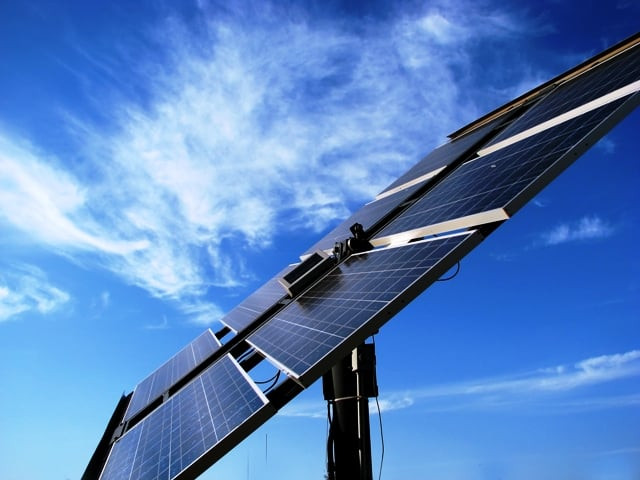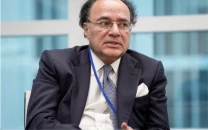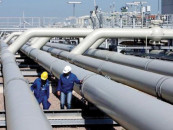Policy reversal hits solar transition
Net metering cuts spark backlash as govt shifts burden to solar users

Pakistan's power sector stands at a critical juncture, as a growing mismatch between policy direction and implementation threatens to derail the country's clean energy transition.
While the government once championed rooftop solar installations as a long-term solution to rising electricity costs and energy insecurity, it is now reversing course – particularly in the net metering regime – leaving citizens and the business community questioning the state's commitment to renewable energy.
Electricity demand in the country hovers around 29,000 megawatts (MW) in peak summer, while the installed generation capacity exceeds 46,000 MW. However, generation remains inefficient due to underutilisation of capacity, poor grid infrastructure, and increasing reliance on imported fuels. Solar energy, once considered a promising alternative, now faces policy obstacles despite contributing around 5% of Pakistan's total electricity generation in 2025.
Solar installations, particularly rooftop systems, surged between 2022 and 2024 as households and businesses invested in net metering, lured by generous buyback rates and government incentives. According to official data, net-metered capacity jumped from just over 300 MW in 2021 to 2,813 MW by the end of FY25, with over 280,000 households registered under the scheme. But the government's recent move to slash the buyback rate from Rs27 to Rs10 per unit has sent shockwaves across the solar community.
"The solar transition, once seen as a cornerstone of Pakistan's energy future, is now treated like an inconvenience," said Mian Sohail Nisar, Patron-in-Chief of the Pakistan Industrial and Traders Associations Front. "The government encouraged this shift but now refuses to integrate it into the formal power system with a long-term view. This kind of policy inconsistency undermines both investor confidence and public trust."
Energy experts argue that the revised net metering policy stems from mounting financial pressure on the national grid. With solar users reducing their dependence on grid electricity and selling surplus power back at high rates, utility companies claim they are struggling to cover fixed infrastructure costs. In 2024 alone, the cost burden shifted onto grid-dependent consumers was estimated at Rs159 billion. Projections suggest this imbalance could rise to over Rs4,000 billion in the next decade if left unchecked.
A former power sector official said the problem is not solar energy, it's poor planning. "The government failed to upgrade the distribution network to handle reverse power flows. Now they are blaming solar users for losses that are actually rooted in technical mismanagement and outdated infrastructure."
He believes the new gross metering model, which bills users separately for imported and exported electricity, may have merit in principle but has been introduced too abruptly. "Policies like these should be phased in with stakeholder consultation. Instead, we are seeing a knee-jerk reaction to financial strain, which could discourage future investments in clean energy."
Consumers who installed solar panels under previous government encouragement feel betrayed. Many invested heavily in hybrid inverters and battery storage, hoping to reduce their dependence on grid electricity and benefit from favourable net metering tariffs. Now, they fear shrinking returns, uncertain billing structures, and even covert replacement of smart meters by distribution companies.
The inconsistency in energy policy is not new. Over the past two decades, successive governments have announced ambitious plans, whether for hydropower, LNG terminals, or renewable energy, only to abandon or reverse them due to changing political climates, pressure from utility companies, or International Monetary Fund (IMF)-mandated reforms.
Energy analyst Syed Farid Hussain said that the biggest failure is the lack of a unified transition roadmap. "You cannot expect a successful shift to clean energy without aligning grid upgrades, pricing mechanisms, and consumer protection. Piecemeal reforms are not a strategy."
He added that with Pakistan's circular debt in the power sector crossing Rs2.6 trillion, pressure is mounting on the state to either raise tariffs or cut losses. Unfortunately, instead of reforming inefficiencies in distribution companies or tackling power theft, the government appears to be placing the burden on solar adopters, those who heeded its own advice, he said.
A structural approach is the need of the hour, an approach which cannot be reversed in a couple of years for any reason. "Pakistan does not need policy U-turns; it needs energy clarity. Without that, we risk pushing away the very solutions that could power our future," added Sohail Nisar.




















COMMENTS
Comments are moderated and generally will be posted if they are on-topic and not abusive.
For more information, please see our Comments FAQ